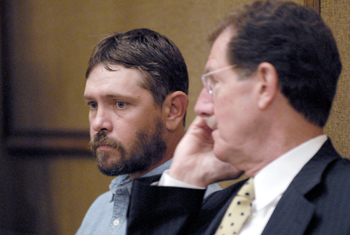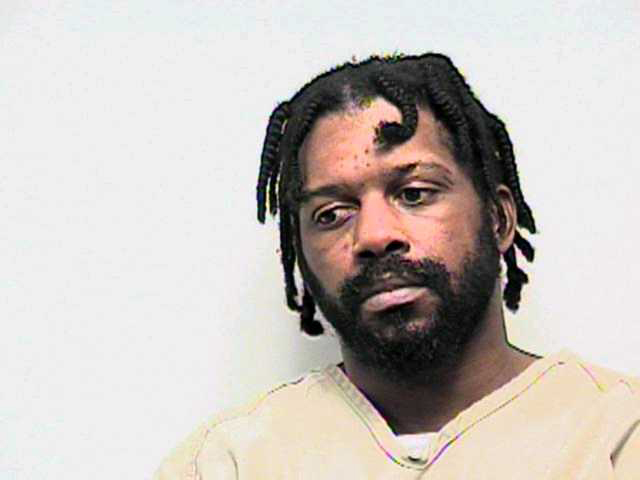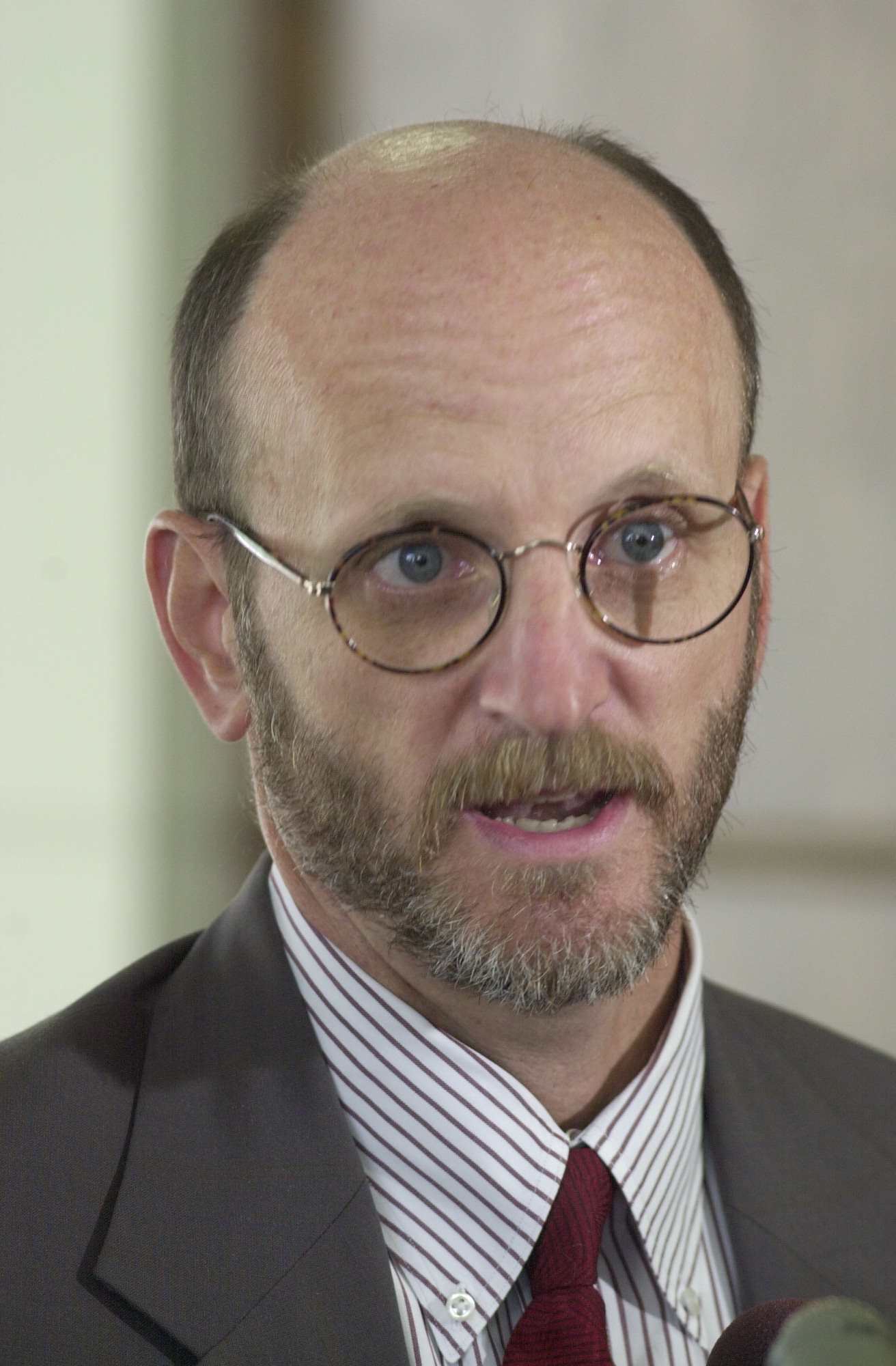
None
Also see today's other articles:Records show history of impropriety in 10th Judicial DistrictTruth, rights suffer in 10th District, defense attorneysMondayA friend to the police.TuesdaySome former officers cry foul.WednesdayParties, perks and pricey dining.ThursdayQuestions swirled around drug chief.FridayHow drug agents brought in millions.
It was six months after Monroe County Election Commission Chairman Jim Miller was robbed, shot and his body set afire in his car in July 2010 before Jessica Kennedy was charged with murder in the death.
Her attorney, John Eldridge, said it took even longer than that before prosecutors began turning over evidence in the case that Kennedy was entitled to use in her defense.
At one point, the Knoxville attorney claimed in court motions that 10th Judicial District prosecutors had not even told him where the crime took place. He eventually tried - unsuccessfully - to get the indictment dismissed or the 10th District removed as the prosecutor for what he called in court documents "outrageous" withholding of evidence.
If such an abundance of effort to acquire evidence looks like overkill, you just have to go back to one of Eldridge's previous clients.
Mitchell Delashmitt spent four years in jail awaiting trial on charges of raping his 14-month-old daughter and shaking and beating her to death. He was charged with child rape and murder. Prosecutors had a confession and an autopsy to take to court.
But in pretrial hearings, it was alleged that the state was prosecuting a case built on a coerced confession and an autopsy allegedly botched by a doctor who later was indicted on drug charges and suspended for improper prescribing.
On June 19, 2003, a Thursday, Delashmitt was supposed to be watching his daughter, Angel, while her mother worked. After the child's body was found in a pond outside his home in rural McMinn County, he was charged with criminally negligent homicide. Four days later, he signed a confession stating that he had raped and shaken Angel, court records show.
Unable to make bond, Delashmitt was still sitting in jail when Steve Bebb took office as the 10th's district attorney general in 2006. In February 2007, Criminal Court Judge Carroll Ross threw out Delashmitt's confession because he was denied an attorney.
Records from the Tennessee Court of Criminal Appeals show that McMinn County investigators lied to Delashmitt, manipulated him and kept him incommunicado while interrogating him and trying to build a case. (See court of appeals opinion online.)
According to the court's findings, Delashmitt's family had sent an attorney, Randy Rogers, to the jail on Friday, June 20, 2003, the day after he was arrested. Delashmitt was supposed to go before a judge the following Monday.
With an IQ of 78, Delashmitt accepted it when McMinn County Detective B.J. Johnson told him Monday that the attorney wouldn't be there because Delashmitt couldn't pay his fee.
Johnson delayed the arraignment while questioning Delashmitt, taking samples for DNA testing and handing him over to a Tennessee Bureau of Investigation agent who administered a polygraph - again, without an attorney, according to the court of appeals.
Then Johnson handwrote a statement, saying Delashmitt had anally raped his daughter, then shaken her to make her stop crying. A videotape showed Delashmitt reviewing the statement with investigators and signing it.
The opinion noted that prosecutors defended the confession as "voluntary" and "not the result of unnecessary delay."
But the trial court rejected those arguments and suppressed the confession. The appeals court agreed.
A forensic psychologist who examined Delashmitt noted his low IQ, ninth-grade education and vulnerability to persuasion. The psychologist, Gregory DeClue, concluded that the statement "was not voluntary."
The appeals judges ruled that investigators had repeatedly violated Delashmitt's constitutional rights, from probable cause for his arrest to timely notice of the charges and his right against self-incrimination and to have an attorney.
The opinion also noted challenges to the autopsy conducted by 10th District medical examiner Dr. Ron Toolsie. Two experts, including the state's chief medical examiner, said the child was not raped and had died of drowning.
At trial in May 2010, Toolsie couldn't testify because he had been indicted on drug charges and his license was about to be suspended. Without the confession or anyone to defend the autopsy, the state's case collapsed.
Delashmitt pleaded guilty to reckless homicide and child neglect. He was sentenced to five years, with credit for time served.
In a July interview, Bebb noted that the constitutional violations listed in the appeals court ruling all took place before he was elected and took over the case.
But Eldridge told the Times Free Press that he 10th District rejected "several" offers by Delashmitt through the years to plead guilty and the case "absolutely" could have been settled.
"He pleaded guilty to what he actually did and what we had offered to plead to - fall asleep" and let his little girl wander off and drown, Eldridge said.
"Mr. Delashmitt is guilty of negligent homicide. He has to live with that for the rest of his life," the attorney said.
VALENTINE'S DAY SLAYINGS
The 10th Judicial District went one for three in its highest-profile case of the last decade: the 1999 Valentine's Day triple slaying in Cleveland, Tenn.
The case was horrific: Assailants kicked in the door of an apartment, shot four people execution-style and stole money. Dawn Rogers, Cayci Higgins and O.J. Blair died. Only Twanna Blair, O.J.'s cousin, survived.
It took years to build the case, but eventually Maurice Johnson and Michael Younger were indicted on murder charges along with Blair, who had moved from victim to co-conspirator.
Johnson was found guilty in 2009 of first-degree murder and aggravated robbery and sentenced to life without parole. Last year, the state Supreme Court declined to review the case.
Prosecutors weren't as successful against Blair and Younger, who both walked free.
Blair was indicted three times on constantly changing charges, ending with conspiracy to commit aggravated robbery, aggravated robbery and three counts of felony murder. The prosecution had to drop the conspiracy charge when it was pointed out that the statute of limitation had expired.
During the trial in September 2009, the jury deadlocked and Judge Amy Reedy ordered Blair acquitted on the murder and robbery charges. Reedy declared a mistrial on a count of facilitating murder in the course of a robbery.
The Court of Criminal Appeals dismissed that charge before Blair could be retried.
The court's opinion, issued in January 2010, stated, "The evidence was insufficient to show anything other than Ms. Blair's presence at the crime scene, and the court ruled that no reasonable person could conclude otherwise."
Blair's lawyer, Chattanooga attorney Lee Davis, said his client never should have been charged.
"In my 25 years of practicing law, I've never seen a homicide case presented to the grand jury with less proof," Davis said.
'I've got a secret'
John Cavett might argue that.
The Chattanooga attorney defended Younger, who went to trial in May 2010. While Cavett believes he could have won because the evidence was weak, Younger went free because of prosecutors' misconduct, court records show.
"I've never seen anything like it. It's one of those cases that you couldn't make it up," Cavett said. "I'm on the other side from the DA's office here [in Hamilton County] every day, but I won't hesitate to say that this kind of stuff that happened in the Younger case would never, never, never happen here."
According to Cavett, the case against Younger rested on testimony from a Monroe County woman named Anita Wilson, who said Younger had made statements to her, implicating himself in the killings.
Cavett said his investigator found out that Wilson had pending charges involving theft from a former employer. But a Sweetwater, Tenn., detective, Bill Illingworth, told the investigator that Assistant District Attorney Jim Stutts had instructed him not to charge Wilson until she had testified against Younger.
It's ironclad constitutional law that someone charged with a crime is entitled to any information the prosecution has that might help the defense. In this case, prosecutors hid their key witness' credibility problem from the defense, Cavett said.
"I've been practicing 31 years and I've never seen anything close to that. That floored me," he said. "To me that's a powerful miscarriage of justice. You're talking about asking a jury to vote to execute somebody on the testimony of a witness whose credibility can be attacked because she's a suspect in another case."
But that wasn't the only problem with the Younger prosecution.
Investigators believed the motive for the slayings was a falling-out among drug dealers. O.J. Blair supposedly had beaten up and robbed Maurice Johnson earlier, and the two had argued at a party the night before the slayings. Johnson was heard saying he intended to get his money back.
But Reedy had ruled that prosecutors could not ask witnesses whether anyone at the party was a drug dealer.
Assistant District Attorney Paul Rush, questioning a woman who had been at the party, disobeyed the order and asked if Younger dealt drugs. Reedy immediately declared a mistrial on grounds of prosecutorial misconduct.
The question was whether Rush asked the forbidden question in hopes of triggering a mistrial and a better chance against Younger in a retrial. In hearings, Rush said he had not. A defense attorney had asked the question about other people at the party, so he thought that allowed him to ask, too, he said.
Cavett said he could see it both ways.
But, he added, "Look at realities. Did they [prosecutors] stand to gain an advantage with a mistrial? The answer is an emphatic yes - they had a lot of fatal errors in this case. ... If the case got passed, they could have fixed that."
To the knife
It's widely known in court and law enforcement circles that Bebb and Reedy don't get along.
"There's a feud between Bebb and her so thick you could cut it with a knife," is the way Cavett puts it.
Reedy ordered Rush and Stutts to report themselves to the Board of Professional Responsibility, which polices lawyers' conduct - Stutts over the concealment of Anita Wilson's pending charges, Rush for violating the judge's order.
Such complaints become public only if the board issues a public censure, reprimand or other disciplinary action. Earlier this month, the board issued a public Petition for Discipline against Rush in the case. Through his attorney, Dan Ripper of Chattanooga, Rush has denied any misconduct.
In a July interview, Assistant District Attorney Stephen Hatchett also defended Rush.
"Paul Rush's decision in that case had nothing to do with the dismissal," Hatchett said. "Paul will be exonerated in his proceeding."
Bebb's office asked Reedy to recuse herself in the case.
According to the DA's motion, "The contentious history between the judge and the prosecuting attorney provides a reasonable basis for questioning the ability of the trial judge to be fair and impartial."
The motion said Reedy had been "openly hostile" to Assistant District Attorney Richard Fisher and had accused him of "unethical conduct" during Johnson's and Blair's trials, and that the court did not act impartially in the Blair trial.
Reedy denied the motion, then recused herself anyway. In her order, she expressed "great concern that either the state is acting at all costs to gain advantage in this motion, or is acting recklessly and without regard for the proper and orderly administration of justice in this matter."
Changing the subject
Before Younger could be retried, the appeals court ruled that withholding the information about Wilson violated his rights.
Bebb asked the new judge in the case, Jon Kerry Blackwood, to dismiss the charges. But rather than the withholding of Wilson's credibility problem or Rush's improper question, Bebb blamed the collapse on Duff Brumley, the Cleveland Police Department detective who had put the case together.
In a news release, Bebb attacked Brumley's credibility, alleging the detective had mishandled evidence in previous cases and had improperly arrested Wilson, among other problems with the case.
Bebb filed a motion to dismiss the case based on what he said was more than 200 telephone calls between Reedy and Brumley while the case was pending. He said they showed the judge and the detective were communicating about the case outside the courtroom. (See Bebb's motion online.)
In July, Bebb told the Times Free Press it was an ethical violation for the judge and a prosecution witness to confer.
"I reported Judge Reedy to the Court of the Judiciary, and the Court of the Judiciary didn't find anything wrong with that," he said.
Reedy declined comment.
"My rulings and my orders are my comments," she said in a brief telephone interview.
At the time, Brumley issued a statement denying Bebb's allegations and noted that he was never charged with wrongdoing. He filed a complaint with the state Board of Professional Responsibility against Bebb, Rush and Hatchett, but the board declined to investigate. (See the complaint and response online.)
Blackwood dismissed charges against Younger in December 2010. In his written opinion, he noted that Reedy never ruled that Rush had deliberately tried to tank the trial.
"I really find it hard to believe that we've come to the point of the state of justice in this case where sworn officers ... who take an oath to the constitution, would deliberately tube a case, throw a case, just for the sake of winning," Blackwood wrote. (See Blackwood's ruling online.)
Contact staff writer Judy Walton at jwalton@timesfreepress.com or 423-757-6416. Subscribe to Judy on Facebook at Facebook.com/JudyCTFP.



